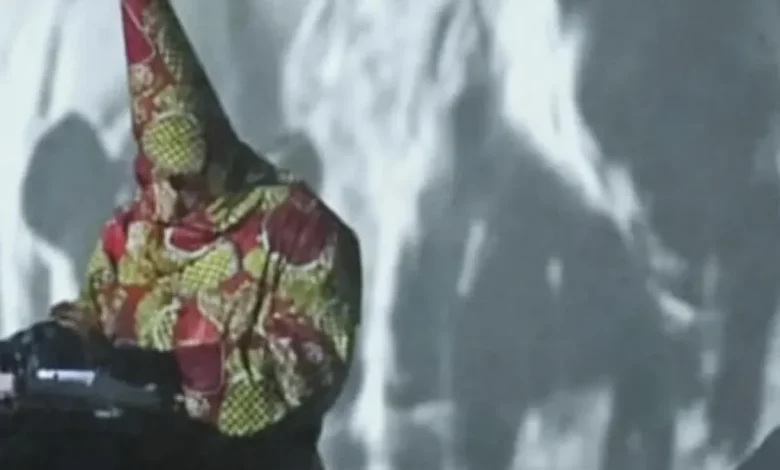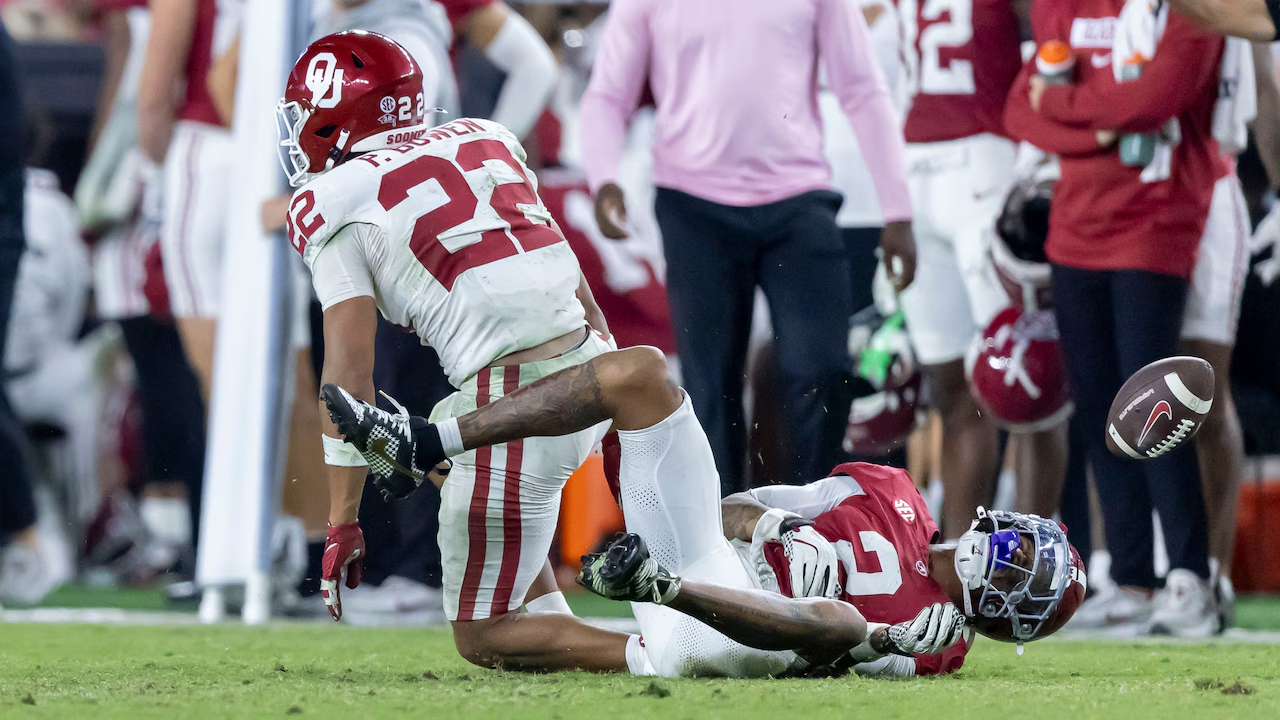African Imperial Wizard Actually a “Middle-Aged White Guy,” Says Xiu Xiu

In today’s edition of “not The Onion,” long-running experimental outfit Xiu Xiu has taken to Instagram to call out African Imperial Wizard, a provocatively-named one-man tribal/industrial project, as actually being a “middle aged white man” underneath his — ahem — patterned Klan hood.
“African Imperial Wizard is a middle-aged white man,” the band wrote in their Instagram post. “We had the extreme displeasure of playing with him last night not knowing who he was until he came backstage and, to our shock, took off his hood. The Imperial Wizard (which is a term for a ‘Ku Klux Klan’ leader) obscures his white identity to the extent that he even wears gloves to cover his hands all while projecting a pastiche of Black African ‘tribal’ imagery on screen.”
“He also claims to be part of an imagined pan-African armed struggle and calls for his African brothers to join together to play on his records,” Xiu Xiu continued. “These records are actually just made with Ableton samples. In the great and horrible tradition of Western music, he is taking the art and lives of Black people and crazily perverting them for his own bizarre edification and profit. This is extreme blackface and a profound level of racist appropriation.”
Related Video
Woof — a lot to unpack here.
Xiu Xiu’s comments follow their appearance at the Hradby Samoty festival in Bratislava, Slovakia, where African Imperial Wizard also performed. While African Imperial Wizard’s Instagram page has since been set to private, evidence of their bizarre facade can still be found on their Bandcamp page, Spotify page, and elsewhere.
In addition to boasting album art that features what seems to be an African tribe in face paint, the artist’s Bandcamp page offers an example of the “pastiche” mentioned by Xiu Xiu in the form of an 86-second promotional video. Elsewhere on the page is a bio that contains gems like “This jam is a major shoutout to CharweNyakasikana, the svikiro who served as the ultimate link between the living and the spirits during our ancestors‘ fight for freedom;” “Despite the oppressor’s pressure, we’ve firmly refused to convert to Christianity, abandon our faith, or give up our mystical mission;” and “We, African Imperial Wizard, want to give a huge shoutout to our comrades who journeyed across Africa to join our recording sessions.”
At the time of writing, their — excuse me — his Spotify page is also littered with images of armed African tribe members. One main picture originates from photographer Brent Stirton (and is also available on Getty Images), while another can be traced back to iStock, another stock image library.
Despite claiming to come from Angola, those known to be involved with African Imperial Wizard all hail from Europe. The project is signed to Tesco Records, a German record label, and one of the few names associated with the act is Andrew Claristidge, a French electronic music producer. It’s currently unclear if Claristidge is the “middle-aged white guy” or merely a close collaborator.
“I am just pretty fed up with how much I had to even think about this over the last couple days,” Angela Seo of Xiu Xiu tells Consequence in an exclusive statement. “I felt hesitant to even bring it up because I knew I would have to deal with the people making excuses, defending him, and then it would somehow be my problem, that we would get hate messages and comments and trolled for bringing [it] up. I would be the sensitive snowflake that was destroying someone’s art and career by overreacting.”
Prior to the post on Xiu Xiu’s main Instagram page, Seo had posted similar sentiments on her personal Instagram story. See screenshots of her posts below.
“There is an additional layer when you’re probably the only person of color in the festival,” Seo adds. “It goes beyond ‘Damn, this is not ok. Maybe he should just stop doing that,’ to bigger online trolling and viciousness that is damaging to everyone. Our responses, our way of engaging online, all this is just so disorienting.”
“I also want to say that I don’t believe in cancel culture. We all make mistakes. And I believe that we should be allowed to make mistakes, learn, grow. We can ‘cancel’ and discard certain actions and thoughts and practices that are not right, not people. But when someone is doing something that’s not right, and hiding behind anonymity, I should be able to say that’s not cool without being slammed with unhinged comments.”
Seo and Xiu Xiu aren’t the first to notice and take umbrage with African Imperial Wizard’s image. One reddit user posted a similar outing on the r/industrialmusic subreddit earlier this year, and with the act existing in some form since at least 2019, these two accounts likely aren’t the first to notice something strange was afoot.
The middle-aged white man did not immediately respond to a request for comment.





